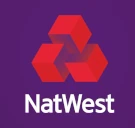1. A comprehensive guide to basic bank accounts in the UK
For most of us, a bank account is an essential tool for navigating modern life. It’s where our salary lands, how we pay our bills, and the hub from which we manage our day-to-day finances. But what happens when traditional high-street banking feels out of reach? A poor credit history, a recent move to the country, or simply a lack of financial records can create significant barriers, leaving many feeling financially excluded.
This is where the basic bank account comes in. It serves as a vital bridge to the financial system for over a million people in the UK. Designed to be accessible and straightforward, these accounts provide the core banking services you need without the complexities of credit.
This comprehensive guide will walk you through everything you need to know about basic bank accounts, from what they are and who they’re for, to how to apply and what alternatives exist.
2. What exactly is a basic bank account?
Think of a basic bank account as the essential toolkit for your money. It strips away the complex features of a standard current account, like overdrafts and rewards, and focuses purely on the fundamentals. Its primary purpose is to give you a safe place to store your money and a simple way to make and receive payments.
Because they are not credit products, they are accessible to individuals who might be turned down for a standard account. Crucially, under an agreement with the UK government, major banks are required to offer these accounts completely free of charge for standard operations.
What you get with a basic bank account
Despite their name, basic bank accounts are surprisingly functional and cover most people's everyday banking needs. With a typical basic account, you can expect to:
- receive a debit card: You'll get a card (usually a Visa or Mastercard Debit) to make payments online, in shops, and for contactless transactions.
- withdraw cash: You can use your card to withdraw money from ATMs across the country, typically for free unless the machine operator itself imposes a charge.
- set up payments: You can arrange for Direct Debits and standing orders to automate your regular bill payments, such as rent, utilities, and phone contracts.
- receive funds: It provides a sort code and account number, allowing you to have your wages, benefits, pension, or any other income paid directly into your account.
- access your money: Most accounts come with access to online banking portals and mobile banking apps, allowing you to manage your money on the go. You can also use bank branches and Post Office counters for depositing and withdrawing cash.
What's not included
The "basic" nature of these accounts means certain features are deliberately excluded to prevent users from falling into debt and to reduce the bank's risk. You generally won't get:
- an overdraft facility: This is the key difference. You cannot spend more money than you have in the account, which can be a powerful tool for budgeting.
- a chequebook: Issuing cheques is not a feature of basic accounts.
- interest or rewards: You won't earn interest on your balance or receive perks like cashback on spending.
- access to other credit: Holding a basic bank account does not automatically qualify you for loans or credit cards from that provider.
3. Who should consider a basic bank account?
Basic bank accounts are a lifeline for a wide range of people. They are specifically designed for those who find themselves locked out of the mainstream banking system. You might be an ideal candidate if:
- you have a poor credit history: If you have past financial difficulties, such as defaults on payments, County Court Judgements (CCJs), or have been declared bankrupt, a basic account is designed for you. Since there is no overdraft, you don't represent a credit risk to the bank.
- you have no credit history: Sometimes, having no financial track record can be as challenging as having a bad one. Lenders have no way to assess your reliability. A basic account is an excellent first step for young people or those new to the UK to begin building a positive financial footprint.
- you're in a debt management solution: Individuals using an Individual Voluntary Arrangement (IVA), Debt Management Plan (DMP), or Debt Relief Order (DRO) will find a basic bank account essential for managing their finances while resolving their debts.
- you've recently moved to the UK: A credit history from another country doesn't transfer over. A basic account provides an immediate way to manage your UK finances while you establish yourself.
- you want a simple budgeting tool: Some people choose a basic bank account voluntarily. The absence of an overdraft makes it impossible to overspend, forcing disciplined money management. It can be a great secondary account for managing household bills.
4. The inner workings: key things to understand
Before you apply, it’s helpful to understand a few key mechanics of how these accounts operate.
The myth of the credit check
A common point of confusion is the credit check. While you don't need a good credit score to be accepted, the bank will still likely perform a check. However, this is usually a "soft" credit search, not a "hard" one.
- soft search (identity check): This is like a bouncer checking your ID at the door to confirm you are who you say you are and that you're not on a banned list (e.g., for fraud). It's a background verification. Only you can see this search on your credit file, and it has no impact on your credit score.
- hard search (credit application check): This happens when you apply for credit, like a loan, mortgage, or standard current account with an overdraft. The lender scrutinises your entire financial history to decide if they want to lend to you. This search is visible to other lenders and temporarily lowers your credit score.
For a basic bank account, the bank is primarily interested in verifying your identity, not assessing your creditworthiness.
Fees and charges: mostly free, with exceptions
Basic bank accounts are proudly "fee-free" for day-to-day banking. This means you will not be charged if a Direct Debit or standing order fails due to insufficient funds. This is a huge relief compared to the hefty fees that standard accounts can levy.
However, "fee-free" doesn't mean "free in all circumstances." You could still face charges for:
- using your card abroad: Making purchases or withdrawing cash in a foreign currency will likely incur fees.
- special payments: Requesting a same-day CHAPS payment (often used for large transactions like house deposits) comes with a significant fee, typically £20-£30.
- pay-to-use ATMs: Some cash machines, often found in convenience stores or pubs, charge a fee for all users, regardless of their bank account type. This fee is set by the machine's operator, not your bank.
FSCS protection: your money is safe
Just like standard current accounts, your money in a basic bank account is protected by the Financial Services Compensation Scheme (FSCS). This scheme guarantees that up to £85,000 of your money per person, per financial institution, is safe if your bank were to fail.
5. Applying for a basic bank account
The application process is usually straightforward, though it can vary slightly between banks. Some allow online applications, while others may require a visit to a branch.
What documents will you need?
To comply with anti-money laundering regulations, all banks need to verify your identity and your address. Typically, you will need to provide one document for proof of identity and another for proof of address.
Common forms of proof of ID:
- Current UK passport
- Current UK photocard driving licence
- EU member state identity card
Common forms of proof of address:
- A recent utility bill (gas, electricity, water) from the last three months
- A recent council tax bill
- A tenancy agreement from a council or housing association
- A recent bank or credit card statement from another provider
If you lack these standard documents, don't give up. Banks may accept alternatives, such as a letter from HMRC, the DWP (confirming benefit entitlement), or even a letter from a warden, care home manager, or employer. It is always best to contact the bank directly to explain your situation.
Some banks have pioneering partnerships to help. For example, some work with homelessness charities to allow caseworkers to vouch for an individual's identity and use the charity's address for correspondence. Similar schemes exist to help prison leavers set up accounts before their release, giving them a crucial head start.
6. Can a bank refuse or close your account?
While these accounts are designed for accessibility, acceptance isn't guaranteed. A bank can refuse your application if:
- you fail identity checks: You cannot provide the necessary documentation to prove who you are.
- they suspect fraud: There are concerns the account will be used for illegal activities or money laundering.
- you are eligible for a standard account: Some banks will only offer you a basic account if you fail the credit check for their standard current account.
- you have a conviction for fraud: While other convictions are not usually a barrier, fraud is taken very seriously by financial institutions.
If you are refused, you have the right to ask the bank for the reason in writing. If you believe the decision is unfair, you can appeal directly to the bank and, if you're still unsatisfied, escalate your case to the free Financial Ombudsman Service.
Account closure and upgrades
Your account isn't necessarily for life. A bank can close your account, giving you at least two months' notice, for reasons such as:
- The account has been dormant for over two years.
- You have opened a standard current account elsewhere.
- You have used the account fraudulently.
Conversely, as your financial situation improves, the bank may review your account and decide you are now eligible for one of their standard current accounts. They must also give you two months' notice and explain their reasoning before upgrading you.
7. Exploring the alternatives
High-street basic bank accounts are excellent, but they aren't the only option. The financial technology (fintech) sector has produced several compelling alternatives.
1. Digital challenger banks
App-based banks like Monzo and Starling have full UK banking licences (meaning your money is FSCS protected) but operate entirely through your smartphone. They typically only perform soft credit checks for identity verification, making them very accessible. They often offer slick apps with powerful budgeting features, though they have a limited physical presence.
2. E-money and prepaid card accounts
Firms like Monese or Suits Me offer accounts that are not technically bank accounts but function very similarly. You get a sort code, account number, and a card. They do not perform credit checks, making them open to almost everyone.
However, there are key differences:
- fees: They often have monthly account fees or charges for certain transactions like ATM withdrawals or transferring money out.
- protection: They are not banks, so your money is not FSCS protected. Instead, it is held in a "ring-fenced" account with a major bank. This means your money is kept separate from the firm's own funds and should be returned to you if the firm fails, but it's not the same as the government-backed FSCS guarantee.
3. Credit unions
Credit unions are community-focused financial co-operatives owned by their members. Some offer current account services that are available to people with poor credit or who are bankrupt. They may charge a small monthly fee and often encourage a savings culture alongside banking. They provide a more personal, community-based alternative to large banks.
8. Frequently asked questions
Can I get a joint basic bank account?
Yes, most providers allow you to open a joint account, provided both applicants meet the eligibility criteria. This can be very useful for managing shared household expenses.
Can I switch my basic bank account to another provider?
Absolutely. You can use the Current Account Switch Service (CASS) to move your account in just seven working days. It's a guaranteed, hassle-free process where your new bank moves all your incoming payments (like your salary) and outgoing payments (like Direct Debits) for you.
What is the minimum age to open a basic bank account?
The minimum age is typically 16, though some banks require you to be 18.
Will I have access to mobile and online banking?
Yes, the vast majority of basic bank accounts offered by major banks now come with full access to their online banking platforms and mobile apps, giving you complete control over your account from anywhere.
Can a basic bank account help me rebuild my credit score?
Indirectly, yes. While the account itself won't appear on your credit file as a form of credit, using it responsibly is a crucial first step. By having your salary paid in and ensuring your Direct Debits for bills are paid on time every month, you are building a positive financial history. This demonstrates stability and reliability, which will be essential when you later apply for credit products and seek to open a standard bank account.
9. A stepping stone to financial health
A basic bank account is more than just a place to keep your money. It is a tool of empowerment, a gateway to the financial system, and a crucial first step towards building a stable and secure financial future. It provides the foundation you need to manage your money effectively, pay your bills with ease, and regain control of your finances.
If you have struggled to get a bank account, don't be discouraged. These fee-free, accessible accounts are designed specifically for you, offering a safe and reliable way to get back on your feet and move forward with confidence.










